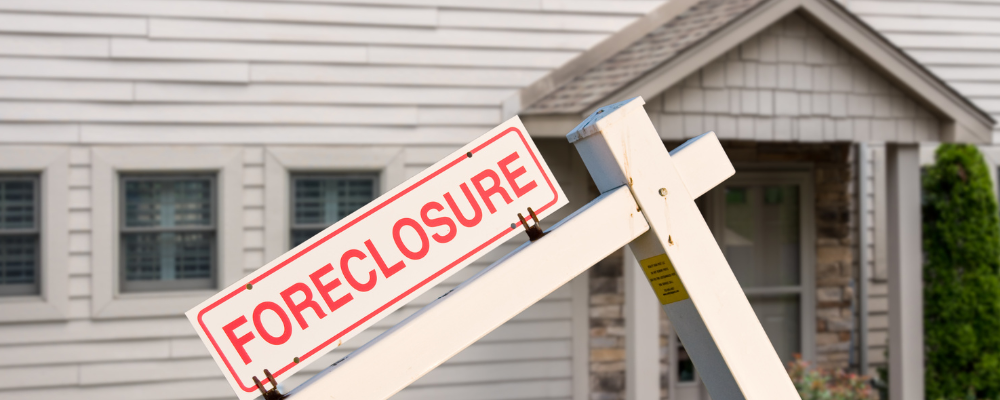The Short Summary
Sometimes investors have a hard time securing traditional financing. Banks don’t like taking chances on risky loans and when you don’t live in the property, they sometimes consider it to be a risk. Add to that a property in ‘fixer-upper’ condition or in a high-risk area and you’ll have a hard time finding a traditional bank loan.
Hard money loans, however, offer an alternative. The qualification requirements, especially for the property, are less stringent, giving investors many opportunities to buy investment properties, increasing their portfolio and their profits.
Before you consider this financing method, it’s important to understand what happens if you default on a hard money loan. There are a few scenarios that you could face if you default, and these include:
- Property loss by foreclosure
- Drop in credit score
- Loss of money
- Legal action
Jump To
Property Loss by Foreclosure
Hard money loans are asset-based, which means that they are secured by the asset, in this case the property. The property serves as collateral on the loan. So, if a borrower cannot repay the loan, the property can be seized by the hard money lender. When you’re wondering what happens if you default on a hard money loan, this is one of the biggest consequences.
Hard money loans are typically used to fund investment properties, so borrowers aren’t likely to lose their primary residence, but they will lose the potential to make money from the investment property. This can be a huge blow to investors who can prevent this by doing adequate preparation and planning ahead of time.
Before you take a hard money loan, make sure that you can pay it back as specified in the terms. The monthly payment is one factor in the deal, but the longevity of the loan and the property itself are two other factors that will come into play. The purpose of the property (ie: fix and flip or rent) will also influence the hard money loan terms and determine if the monthly payment is achievable or not.
Foreclosure Process
When it comes to the foreclosure process for hard money loans, this can vary depending on the laws and regulations in your area, as well as the terms outlined in the loan agreement. However, here’s a general overview of how the foreclosure process works with hard money loans:
- Default occurs: When a borrower can no longer make their monthly payments, or fails to meet the terms of the loan in another way, a default occurs on the hard money loan.
- Notice of default: Hard money lenders will then send the borrower a formal notice of default, which will outline the specific period (grace period) that a borrower may have to ensure that the loan is no longer in default.
- Foreclosure proceedings: The foreclosure will take effect if the loan cannot be repaid. The hard money lender will file a Notice of Intent to Foreclosure at the local authority. After which, the lender will issue a notice of sale, and this will specify the date, time, and location of a foreclosure auction.
- Auction: The foreclosure auction will take place and the property will be sold to the highest bidder.
- Eviction: The borrower will need to vacate the home and the new owners may be able to initiate an eviction in order to take possession of the property.

Drop in Credit Score
As with any default, your credit score pays the largest price when you default on a hard money loan. This is due to the fact that the hard money lender will need to conduct a foreclosure on the property, so your credit score may drop significantly. A low credit score can make it more challenging to obtain credit in the future. A low credit score can also lead to higher interest rates on future loans and credit cards.
The amount that your credit score will drop depends on your current credit score and the laws in your state. Typically, the higher your credit score is at the time of default, the more it drops. A low credit score due to a foreclosure can make it difficult to secure new financing, get a job, or even rent a home or apartment. It will also be easily visible in a business owner’s credit report.

Loss Of Money
All hard money loans require an investment from you. If you’ve had the loan for a while and made payments on it too, you lose any money you put into it. Let’s say you borrowed $100,000 for a $150,000 home. You put in $50,000 of your own funds upfront. If you made payments that totaled $8,000 in the meantime as well, your total investment is $58,000.
If you default on the hard money loan at any point, the lender takes the property and sells it, using the funds to pay off the outstanding loan. The lender would only need to sell the home for 40% – 50% of its original sales price to make its money back.
This leaves you with empty pockets and without the real estate in your portfolio.
Keep in mind, if the foreclosure sale doesn’t cover the balance of the loan, the lender may sue you for the difference, keeping you on the hook for the loan even after you lose the property.
Legal Action
In the event of default on a hard money loan, hard money lenders have the legal right to initiate a series of actions aimed at recovering the outstanding debt. These actions can escalate and have significant long-term financial consequences for the borrower. The legal actions that can be taken include:
- Lawsuits and judgments: The first step in the legal process is often the lender filing a lawsuit against the borrower to collect the amount owed.
- Wage garnishment: With a judgment in hand, the lender may seek to garnish the borrower’s wages. This means a portion of the borrower’s income is automatically withheld by their employer and paid directly to the lender until the debt is satisfied.
- Property liens: If the hard money loan was secured by real estate, the lender may place a lien on the property. A lien is a legal claim against the property’s title, which can hinder the borrower’s ability to sell or refinance the property until the debt is settled.
- Bank account levy: Hard money lenders can obtain a court order to seize funds directly from the borrower’s account to settle for the debt that is owed. Bank account levies can lead to bounced checks, overdraft fees, and financial hardship.

How To Avoid Defaulting On A Hard Money Loan
Avoiding default on a hard money loan is crucial to protect your investment and creditworthiness. Here are some steps you can take to minimize the risk of defaulting on a hard money loan:
- Understand the loan terms before you get the loan papers signed – including the interest rate, repayment schedule and any fees.
- Plan an exit strategy, so that you can repay the loan when you need to. For example, selling the property.
- Conduct thorough due diligence on the property and ensure that it has the potential to generate enough income.
- Create a detailed budget that accounts for any expenses that you may incur.
- Keep an emergency fund to cover any unrelated expenses or the monthly payment on the loan.
- Explore refinancing options for hard money loans that have a balloon payment. This may involve seeking another method of repaying the hard money loan.

Are Hard Money Loans Worth It?
Understanding the terms of a hard money loan is essential, just as with any financial arrangement. While hard money loans can provide the necessary capital to expand your real estate portfolio, it’s crucial to ensure that you can comfortably meet the loan’s obligations. Similar to conventional bank loans, failing to adhere to the terms of a hard money loan carries significant consequences, including the potential loss of your property and the adverse impact on your creditworthiness.
Defaulting on a hard money loan is no different from defaulting on a typical home mortgage, as it places you in jeopardy of forfeiting your property, jeopardizing your investment, and tarnishing your previously favorable credit history. Therefore, before pursuing a hard money loan, conduct a comprehensive assessment of your financial situation and evaluate the property’s prospects. Ask yourself whether the property has the potential to maintain its value, command a sufficiently high selling price after renovation and resale, or generate ample income to cover the costs associated with the hard money loan.
If the property aligns with these criteria, a hard money loan can present an attractive option. These loans typically offer more flexible guidelines and faster access to funding, enabling you to seize promising real estate opportunities and fulfill your property investment aspirations without exceeding your budget.



